SHUGA - Senior Marine Biologist & Dive Instructor
When the size mattersIn a country where fish and other marine animals are the main source of food, the problem of catching undersized fish is common. This affects the life cycle of fish and ultimately their population growth, an effect of the human footprint that could be easily controlled and avoided.
Fish and other marine organisms are genetically programmed to reach a certain age to reproduce depending on their breed. Our role in safeguarding this, by not catching undersized fish, is extremely important in maintaining stable populations.
At Baros Maldives, we take responsible measures during both guest fishing excursions and food supply: every fish that we catch is measured and released when the size doesn’t meet the minimum established by the local authorities.
For example, a lobster’s breeding cycle takes around two years to be completed. They will carry their eggs for up to 18 months until they hatch – one of the longest incubation periods in the sea. For this reason, it is important that we ensure female lobsters do not end up in our restaurants.
The Baros house reef provides a stable environment for our marine life to thrive and reproduce. We can observe lobsters, barracudas, and groupers – from juveniles to adults – on the reef during snorkelling and diving activities.
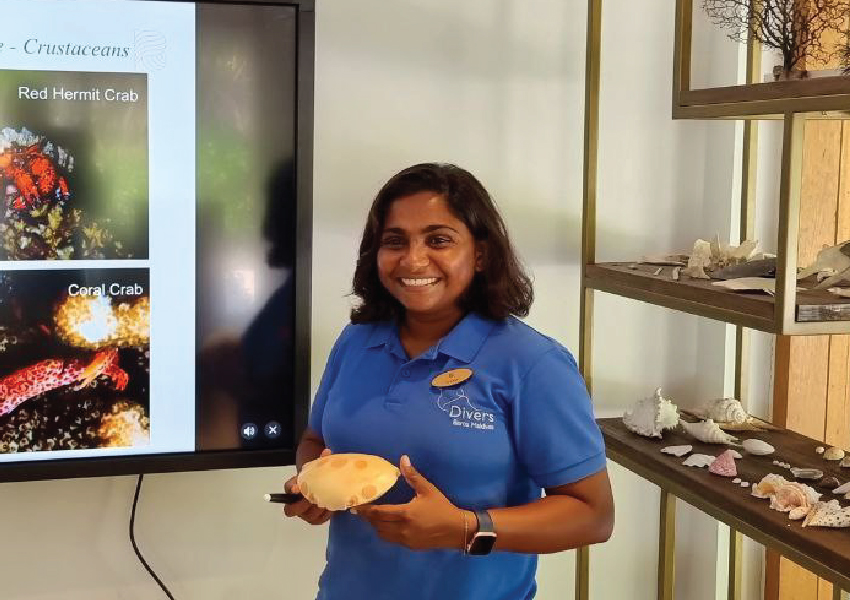
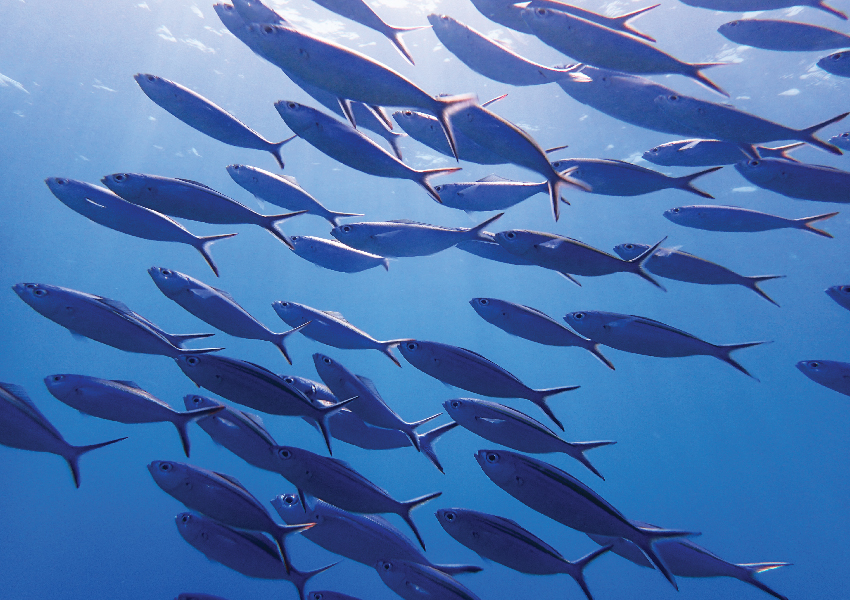
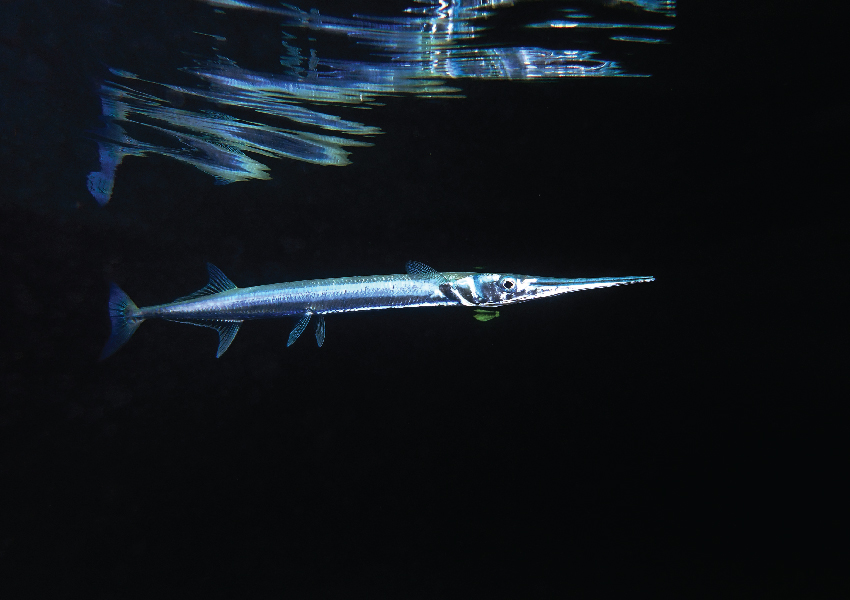
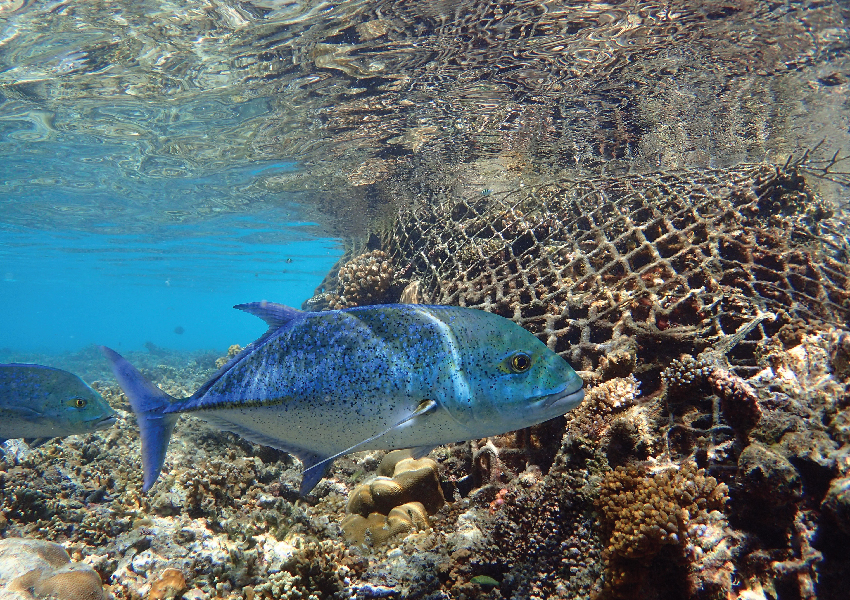
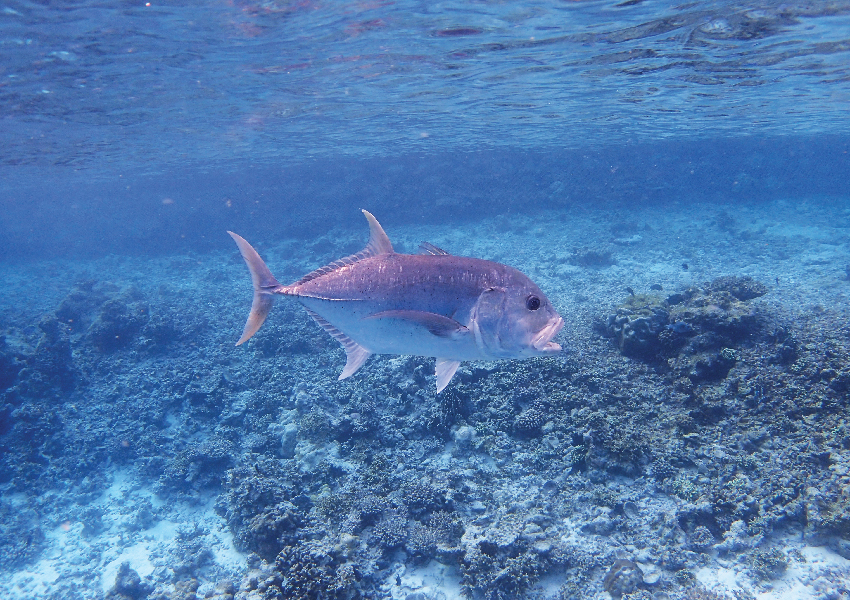

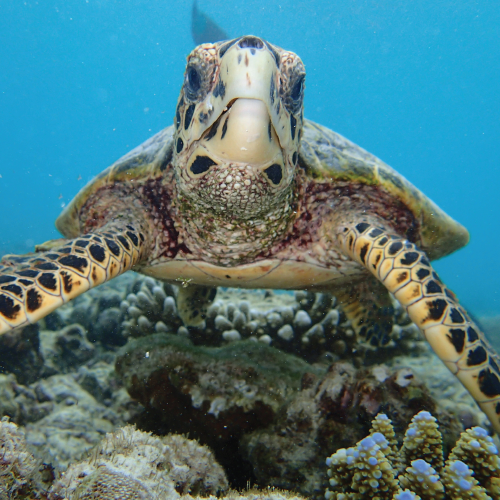
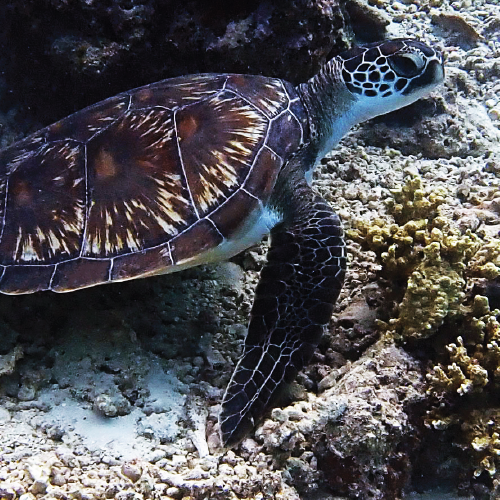
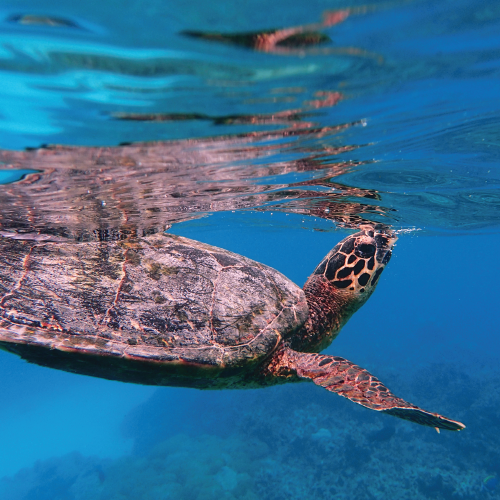

Turtles at Baros
Hawksbill sea turtles are common to the Maldives and Baros house reef is home to more than 20 resident turtles.
For the past 15 years, we have identified certain sea turtles that love to spend time on our reef, either due to the abundance of food or the shelter it provides from predators. These hawksbills are regularly seen by divers and snorkelers. A few of them let themselves be photographed daily while others like to travel to neighbouring reefs, returning to the house reef for occasional appearances.
We can identify individual turtles by the unique pattern of facial scales or ‘scutes’ on their cheeks. Here you will find a fingerprint-like pattern that does not change during their lifetime. North Malé Atoll has a vast database containing identification numbers for the turtles, and often, a name which is given by the person identifying the turtle for the first time.
Bonthi, a long-stay turtle on our house reef since 2012, is seen regularly and is easy to recognize as its head is darker than others. And you just can’t beat the spicy, salty personality of Parsley, a resident of the reef since 2011.
Green sea turtles and olive ridley turtles are sighted less frequently at our house reef. They, unfortunately, often fall victim to ghost nets that drift in from other countries towards the Maldives. Whenever the Baros Dive team comes across such vulnerable, trapped turtles they invest in their rescue, care and release.
By educating our guests to respect these gentle creatures, we ensure a long life for the turtles and a safe reef where they can live out their life cycle, including the spectacular moment of laying and hatching their eggs – as with our resident turtle Tiger, when she laid her eggs on our island in 2020.
 English
English РУССКИЙ
РУССКИЙ DEUTSCH
DEUTSCH 简体中文
简体中文 Spanish
Spanish